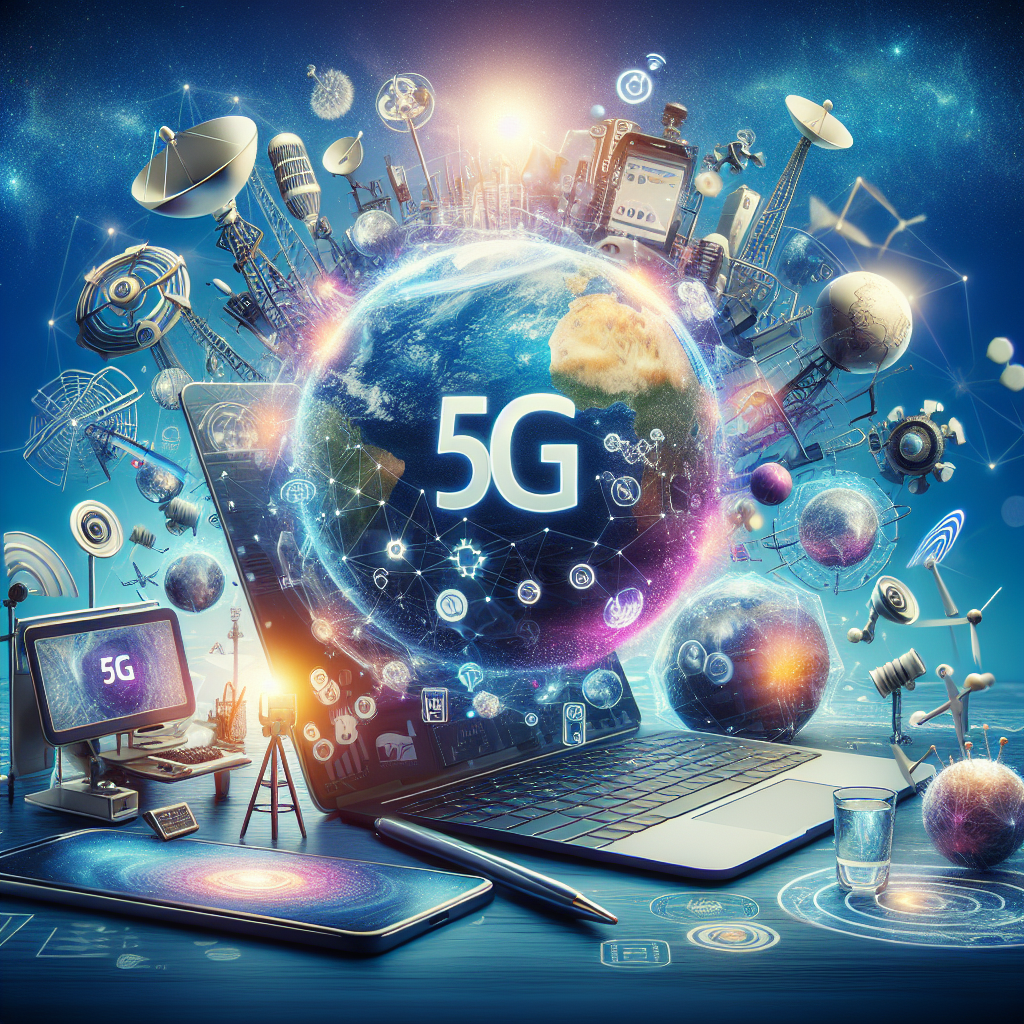Welcome to the future of connectivity! In this article, we will explore the potential of 5G technology and how it is set to revolutionize the way we live, work, and interact with the world around us. From faster internet speeds to transformative advancements in various industries, 5G is poised to bring about significant changes that will shape the way we experience the digital and physical realms.
The Promise of 5G
5G, or the fifth generation of wireless technology, holds the promise of delivering unprecedented speed, low latency, and massive connectivity. With speeds up to 100 times faster than 4G networks, 5G has the potential to transform the way we access and utilize data across various devices and applications. The reduced latency, or the time it takes for devices to communicate with each other, will enable near real-time interactions, opening up opportunities for innovations in areas such as augmented reality, virtual reality, and autonomous vehicles.
Impact on Industries
The rollout of 5G is set to have a profound impact on multiple industries, including healthcare, manufacturing, transportation, and entertainment. For example, in healthcare, 5G can enable remote patient monitoring, telemedicine, and augmented reality-assisted surgeries. In manufacturing, it can power advanced robotics, real-time analytics, and smart sensors for predictive maintenance. Transportation stands to benefit from enhanced vehicle-to-vehicle communication, leading to safer and more efficient autonomous driving experiences. In entertainment, 5G will enable seamless streaming of high-definition content, immersive gaming experiences, and interactive virtual concerts.
Implications for Society
As 5G becomes more widely available, it will bring about significant changes in how we interact with technology and each other. The proliferation of connected devices and applications will transform our homes, cities, and workplaces. Smart homes will integrate with 5G networks to provide energy-efficient solutions, smart appliances, and security systems. Cities will leverage 5G for smart traffic management, public safety, and environmental monitoring. The workplace will see increased productivity through seamless connectivity, remote collaboration, and the adoption of augmented reality for training and maintenance tasks.
Challenges and Considerations
While the potential of 5G is vast, its implementation is not without challenges. The deployment of 5G infrastructure requires significant investment and coordination among telecom companies, regulatory bodies, and local governments. There are also concerns about security and privacy, as the increased connectivity raises the question of safeguarding sensitive data and mitigating cyber threats. Additionally, there are debates around the impact of 5G on the environment, including energy consumption and the disposal of electronic waste.
FAQs
What is 5G, and how does it differ from previous generations of wireless technology?
5G is the fifth generation of wireless technology, offering significantly faster speeds, lower latency, and higher capacity compared to 4G networks. It promises to enable new use cases and applications in areas such as augmented reality, virtual reality, and autonomous vehicles.
What are the potential benefits of 5G for businesses and consumers?
Businesses stand to benefit from increased productivity, enhanced connectivity, and new opportunities for innovation across various industries. Consumers can expect faster internet speeds, improved mobile experiences, and the proliferation of new services and applications that leverage 5G capabilities.
Are there any health concerns associated with 5G technology?
The rollout of 5G has sparked debates around potential health effects due to increased exposure to electromagnetic radiation. While scientific studies have not established any conclusive evidence of harm, regulatory bodies continue to monitor and assess the impact of 5G radiation on public health.
Conclusion
In conclusion, 5G technology represents a significant leap forward in connectivity and has the potential to reshape our world in profound ways. From boosting economic growth to enabling new forms of digital interaction, 5G is set to be a transformative force across industries and societies. As we embrace the future of connectivity, it is crucial to address the challenges and considerations associated with 5G deployment while capitalizing on the myriad opportunities it brings. Let us prepare for a future where seamless connectivity, innovative applications, and enhanced experiences become the norm with the advent of 5G.
















